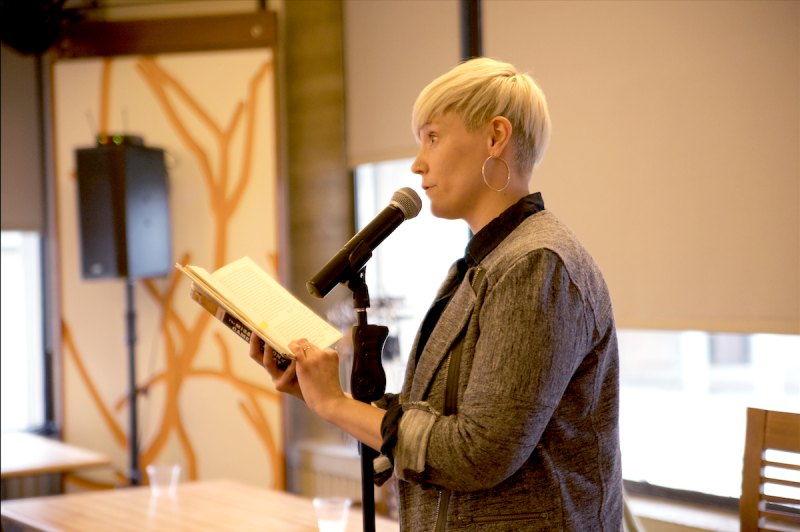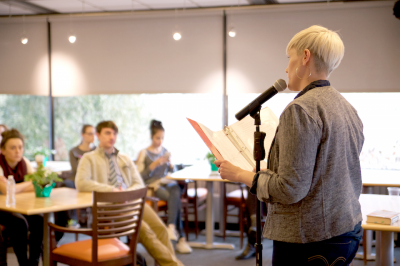LGBT author discusses art imitating life
For young readers, coming of age stories can become stale with the same old tropes, but author Emily Danforth is writing them through the scope of the midwestern queer experience.
In honor of UMass Dartmouth’s creative writing minor becoming part of the curriculum in the fall semester, the Living Literature seminar was adopted to create a “culture of creative writing” said English professor Lucas Mann. Once a semester, an author will be brought in to foster creativity and talk about his or her writing process with students.
Danforth’s 2012 debut novel, “The Miseducation of Cameron Post,” is a “coming of gay-ge” story of a girl growing up in the midwest in the early 90s. The story follows Cameron in her journey of self-discovery when she is sent to a conversion camp after her conservative aunt finds out about Cameron’s romantic relationship with a female friend.
As a self-identified “queer” woman, much of Cameron’s character is drawn from Danforth’s own life and experiences. As a teenager growing up in Montana in the ‘90s, Danforth felt isolated and restricted in her own sexualty, which she wasn’t driven to fully explore in her writing until she came out while attending Hofstra University and took up creative writing.
During the talk, Danforth read excerpts from “The Miseducation…” as well as her upcoming novel, currently titled “Side Talks,” which revolves around the meta story of an urban legend of “the strange demise of Florence Abel” at a boarding school in Maine. The story takes on a life of its own when a “teen genius and a teen actress” cross paths as the genius’ written version of the story is adapted into a film. The story follows the writer and the eclectic young actress, and the “romantic friendship” that blooms between them.
Danforth’s most notable qualities as a writer are her commitment to research and her ability to produce more than 800 pages of writing that are then cut down to about 400 for publication. For “The Miseducation…,” which took seven years to write, Danforth actually sat in on prayer meetings dedicated to combating sinful habits. Much of the book was based on primary accounts from people who were sent to conversion camps.
Though it’s not a “conscious decision,” most of Danforth’s stories revolve around LGBT characters.
“It would take more effort not to write queer people than it is to write queer people,” Danforth said.
She said the most interesting phenomenon as a fiction writer was how often people close to her read her writing and assume that events are based in reality.
“The thing that happens if you’re a memoirist is people accuse you of making things up and exaggerating. The thing that happens when you’re a fiction writer is that people are always like ‘I can’t tell if this is true,’” Danforth said. “I can at least say ‘This is fiction, leave me alone.’”
Mann, a published memoirist, couldn’t say the same.
Though Danforth draws from her own life and experiences in some capacity, the most revealing parts of her are things she was inspired by from other texts.
Danforth lives in Providence, Rhode Island where she teaches at Rhode Island College.














